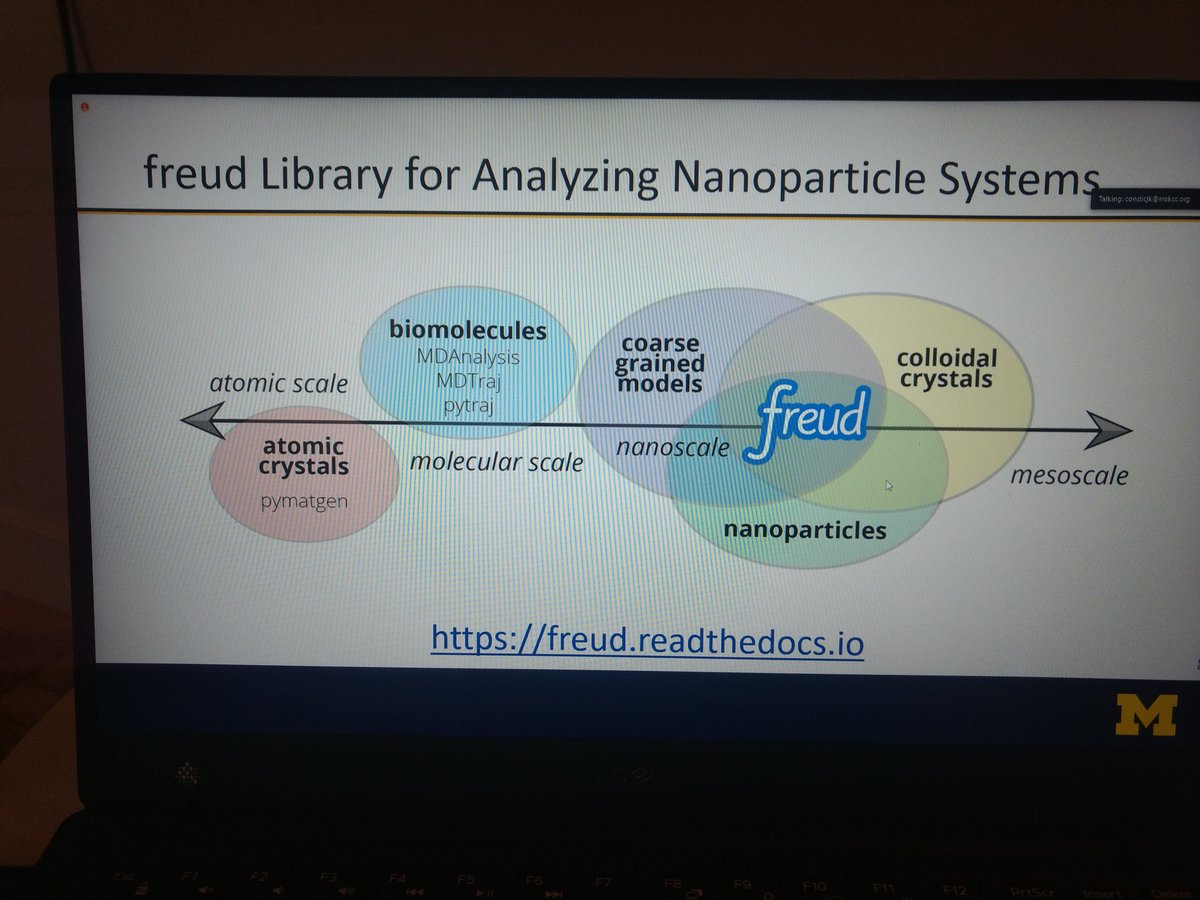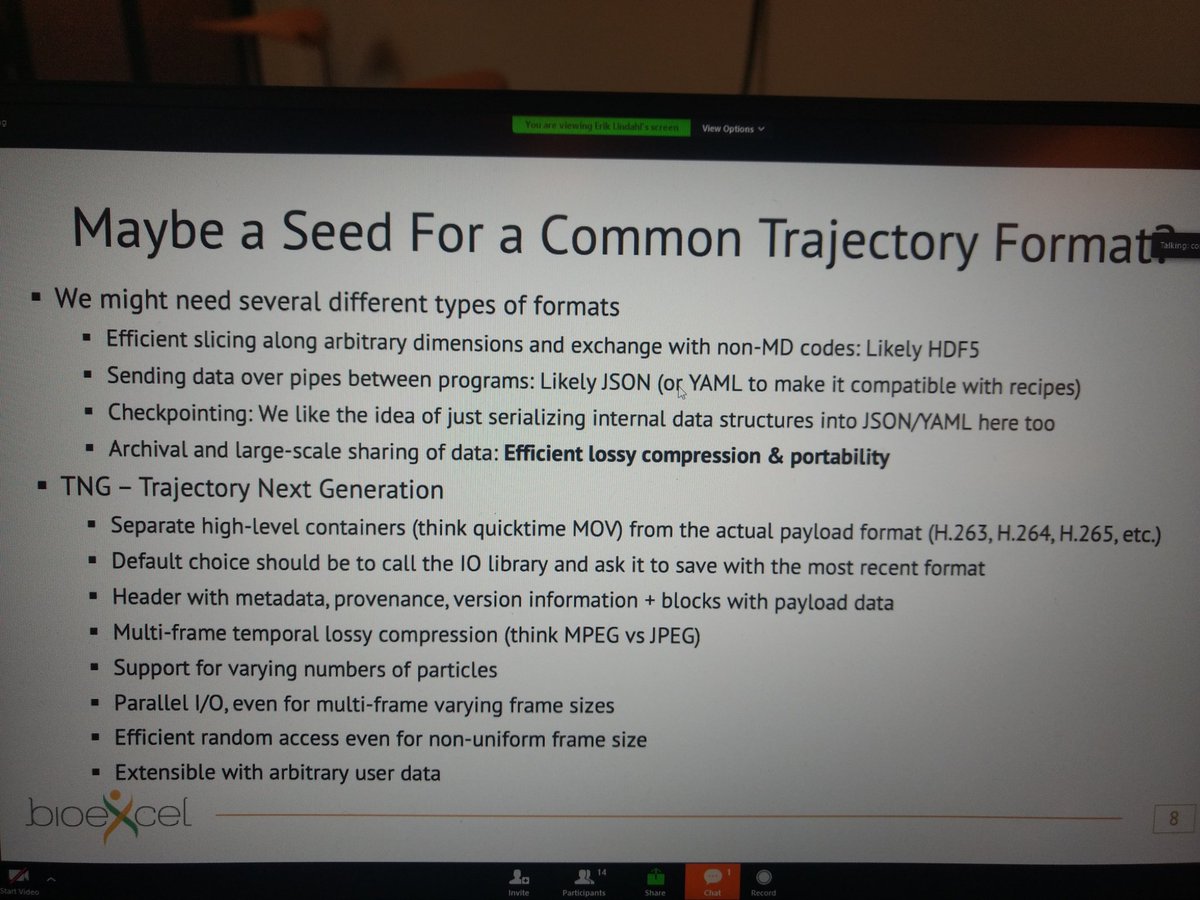#Output: probably easier to handle and we can learn from other fields, like climate research.
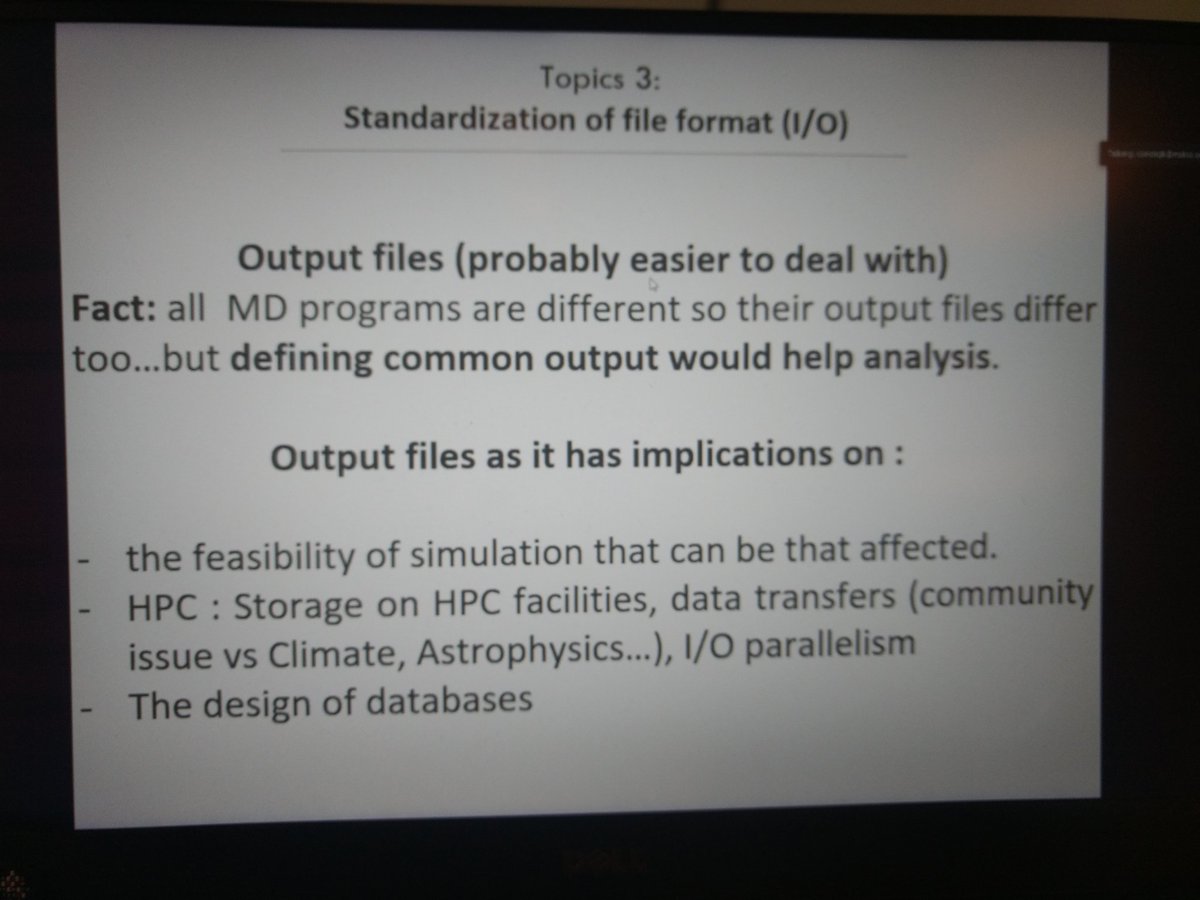
cc: @agrossfield
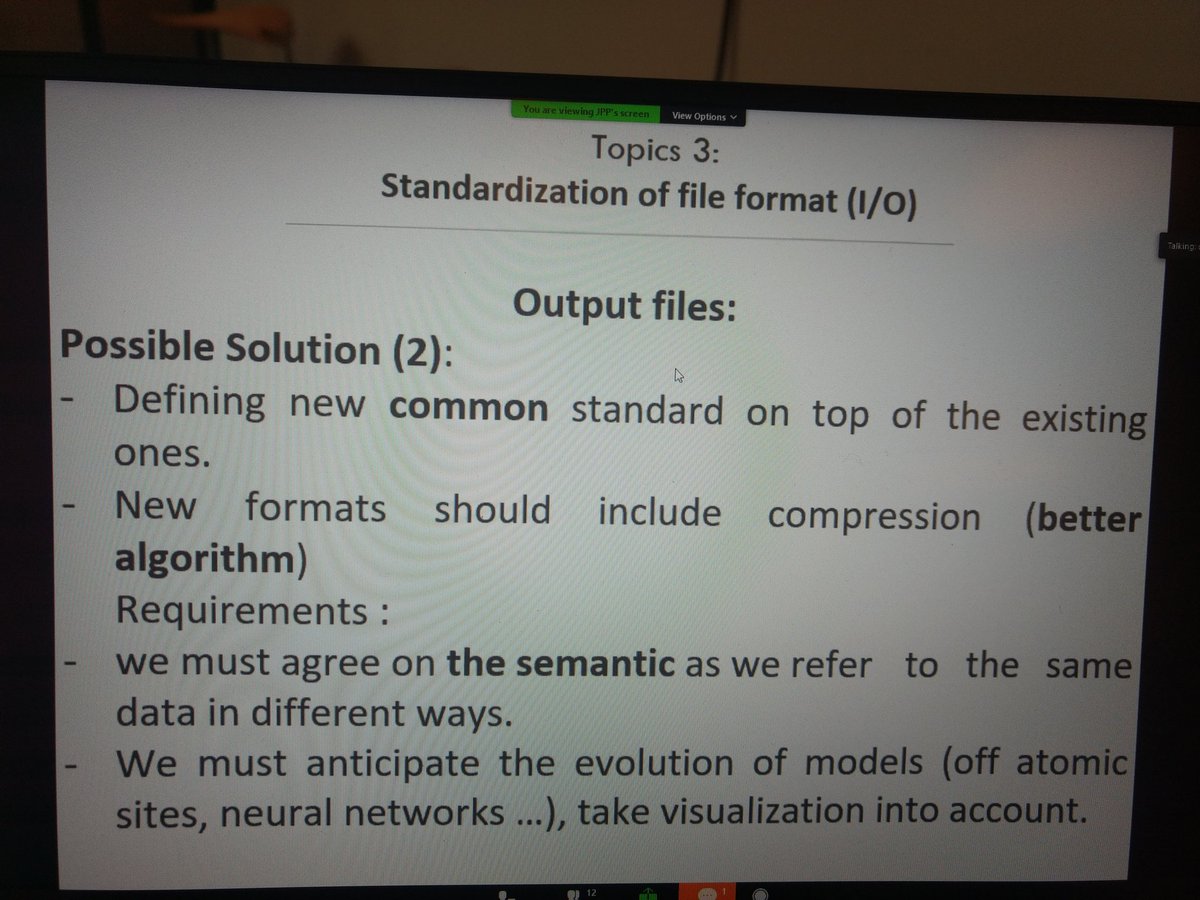
This talk was fast!
"Interoperability is first #semantics, not #formats".
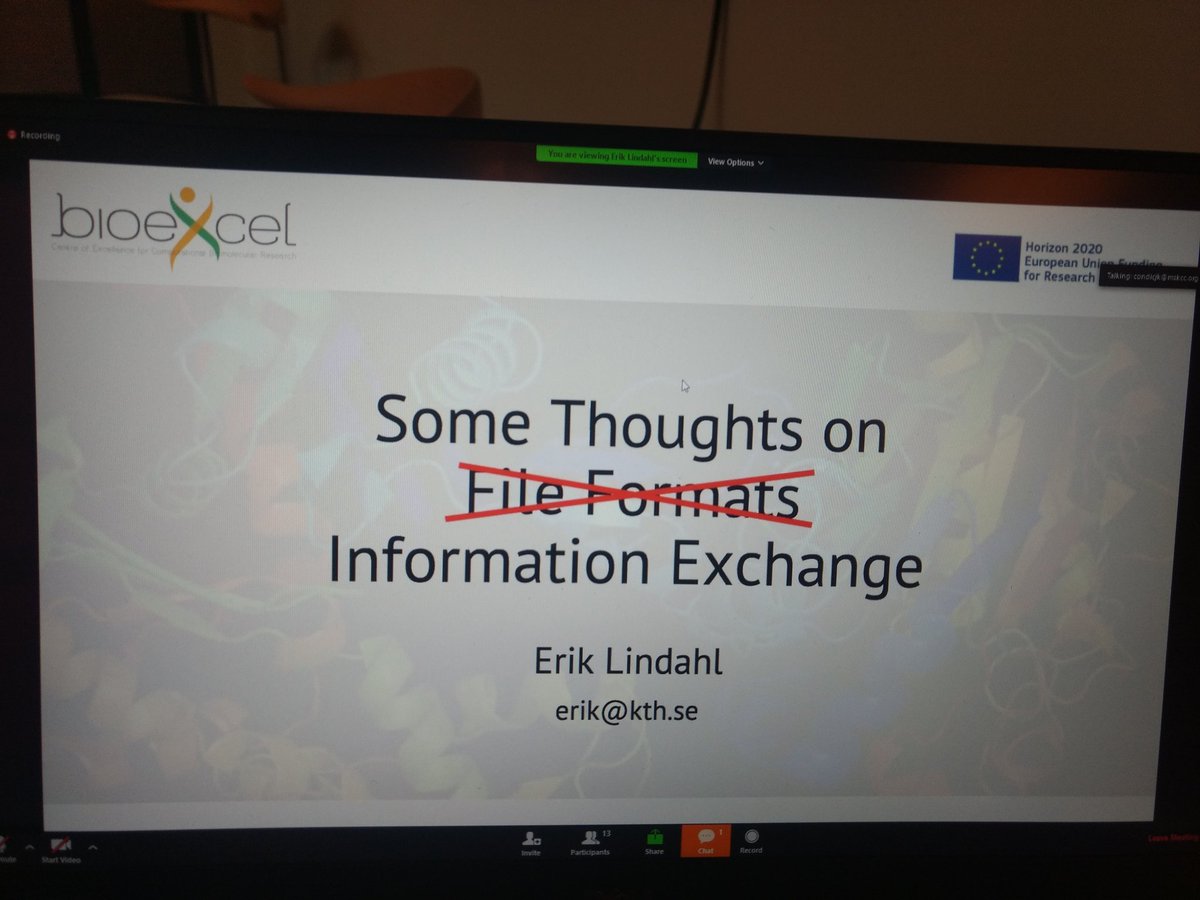
So, what do we mean when we say things? #semantics strikes again
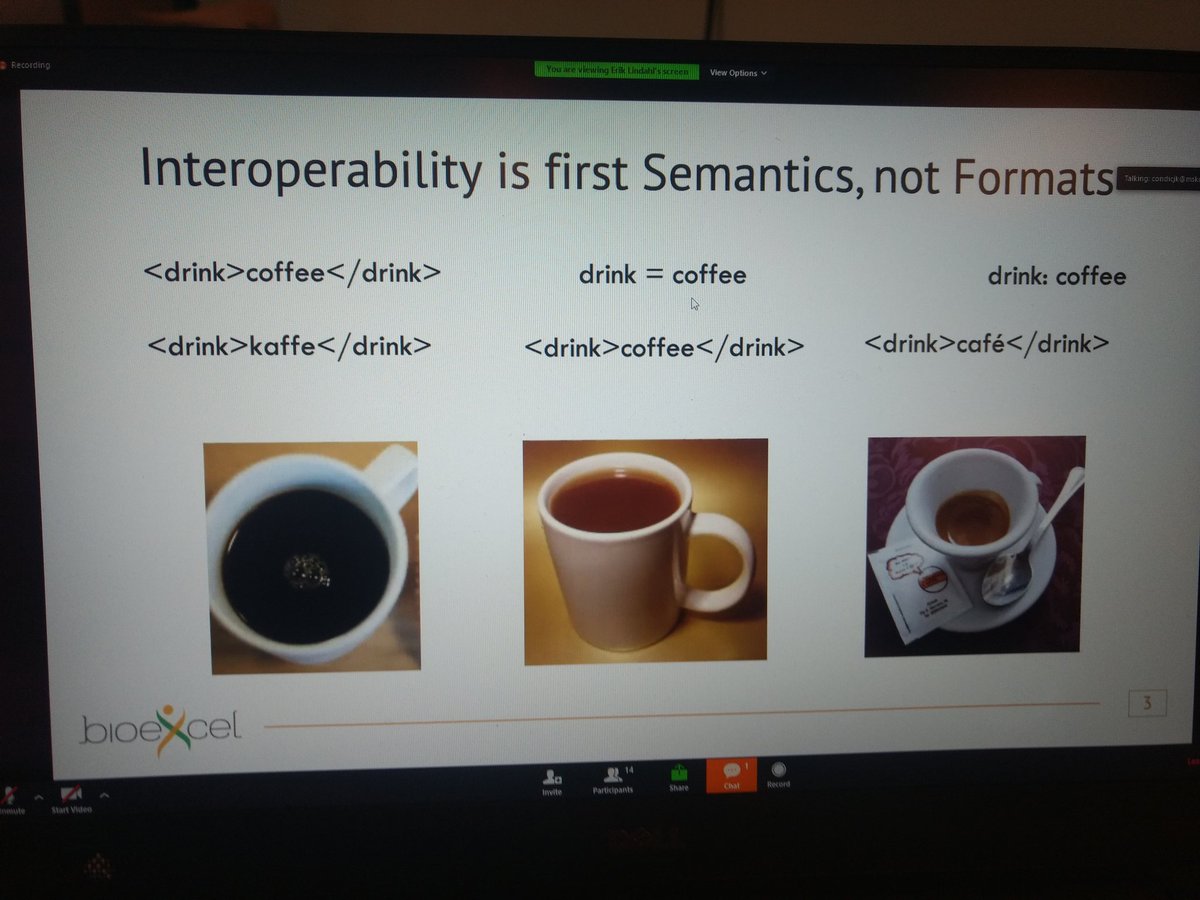
Some suggested solutions below, in essence -- find a core set of common options that we all agree on. Which is a large amount of work.
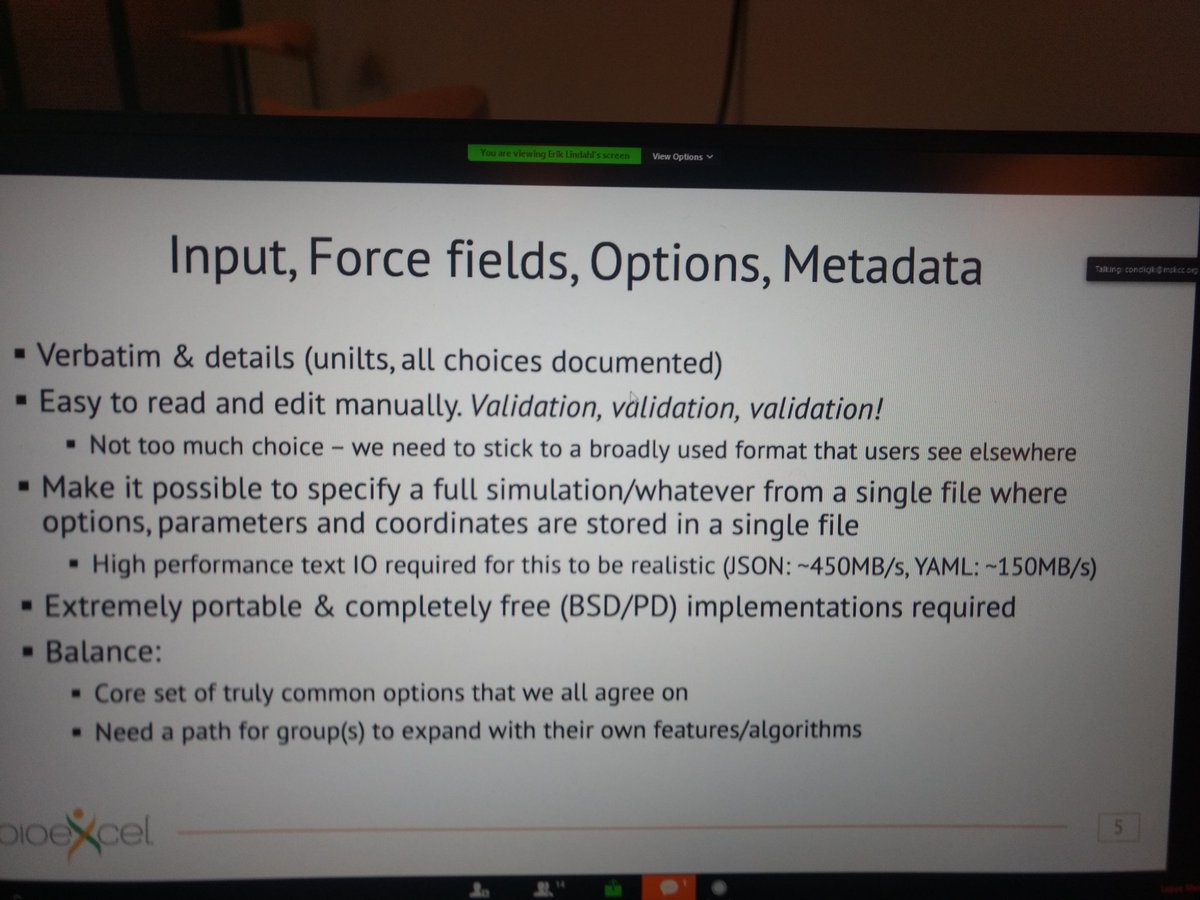
Peter ends with an optimistic outlook: Sorting this out will be a lot of work that will keep occupied for a long time to come 🔧⚙️
glotzerlab.engin.umich.edu/hoomd-blue/
freud.readthedocs.io/en/stable/
